
Fine Classical, Instrumental, and Specialty Recordings
Label: Soundset Recordings Item Number: SR1121 Format: CD Year Recorded: 2020 Vienna Concert Raphaella Smits
Raphaella Smits - guitar 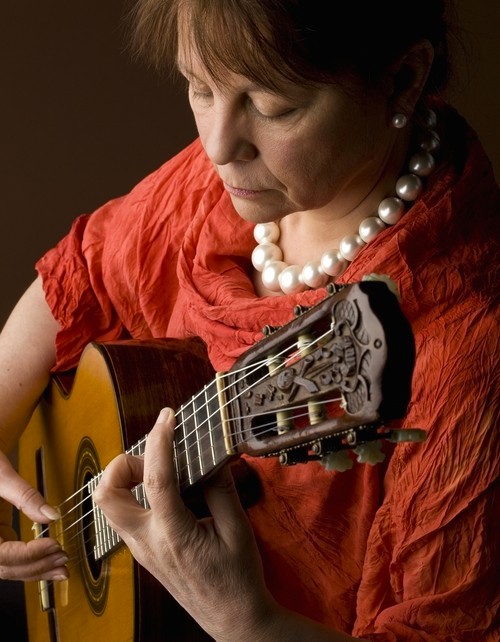 Raphaella Smits plays worldwide in her unique way on eight-string guitars and historical instruments. Recognized as ‘an uncommonly musical guitarist’ (Tim Page, New York Times), she always commits to the soul of the music. Her solo recitals as well as her performances with the most distinguished colleagues always meet enthusiastic audiences and press. Besides stage-work Raphaella Smits has made 5 LP's and 17 cd's (including 12 for Accent Records), many of them being listed as indispensable to refined music lovers. Raphaella Smits is internationally praised as an inspiring teacher for both guitar and chamber music. In addition to her chair at the Lemmens Institute in Belgium, she regularly gives master-classes in West and East Europe, in North and South America and in Asia. Organizers of international music competitions ask Raphaella as a member of the jury because of her ability to listen and to judge so accurately. Here again she shows her talent to combine professional skills with a great sense of empathy. Raphaella studied classical music at the Royal Conservatories of Antwerp and Brussels. She also went to José Tomàs to perfect her playing at the "Catedra Andrès Segovia" in Spain. At that time she was giving her first recitals and became a persuasive advocate of the eight-string guitar. In 1986 Raphaella Smits was the first woman to win the first prize of the "XX Certamen Internacional de Guitarra Francisco Tarrega", the famous international guitar competition in Benicasim, Spain. That victory confirmed the progress of a successful career, which over the previous years had included prizes in the Granada and Palma de Mallorca contests. Chairmen Andrès Segovia and Narciso Yepes, both expressed their admiration for Raphaella's musicality and put prophetically confidence in her future achievements. Today Raphaella Smits is called quite rightly ‘une Grande Musicienne’ and ‘one of the most delicate and most cultivated performers of our time’ (Jean Bernard, Diapason, FR). More info at http://www.rsmits.com  raphaella_smitsvienna_concert.pdf * raphaella_smitsvienna_concert.pdf * guitare_classique_review.pdf guitare_classique_review.pdf* Note: This file is only available to customers from within their Soundset account.
About performing art As a performing musician, you are a translator. As a translator you work with at least two languages: one in which the work in question is written and the other in which the translation must be done. We have to understand that second language thoroughly, not just the alphabet, the words, and the phrasing, but above all the deeper meanings.
We try to hear what a composer intended, what he would have heard in his inner ear, what he tells us through his music, and what we can make the listener learn from the rhetoric in the music. This will most obviously be possible with the correct instrument, whatever this is. It must be the instrument that allows you to write perfectly the music in the mind of the listener.
In the nineteenth century there were many different types of guitars. Some builders were known for their experimental constructions; others would maintain the tradition, just as we have it nowadays. So what is the most correct instrument to perform (contemporary) music? It will be the one that allows us to serve most faithfully the thoughts of the composer.
J. K. Mertz played different guitars, having from six-to-ten strings. Reading the letters by Nicolai Petrovich Makaroff (1810–1890), we discovered how difficult it was (and still is) to find the best instrument, the most suitable and available one. Great guitar builders such as Stauffer, Scherzer, and Fisher were all devoted and well-known by many performers in Vienna and beyond. My guitar has no label. It’s not a typical Viennese instrument, but a French-made guitar from the time of Mertz. Just as it was common practice in those days, luthier Bernhard Kresse added two low basses, which gives me the opportunity to play the music written for more than six strings, as it is the case for several works of Mertz. In the meantime, it gives the instrument and the music a resonance and depth that perfectly serves the composer’s intentions.
Mertz himself played masterfully, mainly solo works of his own, but also chamber music. Some of his most complex compositions could only be published posthumously because he was convinced that most players would fumble, being incapable of producing the right sound for his work. In addition, publishing houses would find his music too virtuosic for the average guitar player, and therefore impossible to sell.
As Makaroff describes in his Memoirs (© 2016 Matanya Ophee): “He [Mertz] was indubitably the best of German guitarists … power-energy-feeling-distinctiveness, expression and self-assurance.” But Makaroff was rather critical about the (i-m) perfection in Mertz’ playing, with growing respect for the composer, as well as for Mertz himself. He listens with bliss and reports: “rich substance, profound knowledge of music, excellent design and development of an idea, completeness of harmony, clear melody flowing above the chords and arpeggios, brilliant but not vulgar effects …”
For me, the quality of Mertz’ compositions match the works of the greats such as Chopin, Liszt, Schumann, and Schubert. Beyond that, he had his own language: beautiful melodies, fantastic cadenzas, virtuosic passages and with that ever-present Romantic soul. The vocabulary with which he wrote his works often shows melancholy, softness, broken chords, fast passages and a clear polyphonic way of thinking. He writes orchestrally or pianistically, not in the styles of other typical and mundane nineteenth-century guitar music.
I've been interpreting Mertz's work for many years now, but the selection for this recording gives a broader picture of his music and informs more about how he played, and how he intended it to be played, I think.
About this recording For this recording, I’m using gut strings - expensive, difficult to get, not always in tune, quickly worn out, and consequently a terrible sound as a result. But: with good care, they result in fast projection, great tuning, and a transparent, clear and elegant sound. Moreover, and most interestingly, is the need to use a different technique, which sometimes leads to a very remarkable, slightly different interpretation. This was a discovery in beauty and understanding; the instrument is in balance, and so is the music. This results in the player's technique in service of the language, a language that is the composer's speech. I sincerely hope that I have succeeded in this intention. Mertz is one of the great guitar composers, undervalued due to lack of understanding and the necessary virtuosity, and a lack of freedom and a poor imagination. Mertz' important contribution to the guitar repertoire deserves all the attention it can get. The addition of Mertz’ transcriptions of some Schubert Songs from Schwanengesang indicates his musical sympathy for the latter. As for Der Leiermann from Winterreise, it fits so incredibly well that one would believe it was written especially for guitar, an instrument that Schubert loved very much. I could not resist presenting my own version of it. All these works were adapted for my eight-string Mirecourt guitar of 1827. Strings 1 and 2, Kürschner gut; 3, Savarez Alliance; 4, 5 and 6, Fisoma silver wound basses; 7 and 8, Labella Argento pure silver. The collaboration with Javier Salvador was once again inspiring, very professional, and with a lot of understanding. - Raphaella Smits
Label: Soundset Recordings Item Number: SR1121 Format: CD Year Recorded: 2020 Recording Engineer: Javier Salvador Martin, JSM Guitar Records. (https://www.jsmrecords.com) Because Vienna is far away, Raphaella likes to bring the atmosphere of the city to you on her new CD 'Vienna Concert'. With her Mirecourt guitar from 1827, Raphaella creates a magnificent image of Vienna in the first half of the nineteenth century. To achieve this, she has put together a sublime program from the work of Johann Kaspar Mertz and Franz Schubert. Johann Kaspar Mertz; Franz Schubert Vienna Concert Raphaella Smits Guitarist Raphaella Smits is a treasure, and her latest recording is too. While the album title might lead you to expect a live recording, that’s not what this is; instead, it seems to be an example of what a guitar concert in an intimate domestic setting in Vienna might have sounded like, circa the early 1800s. Hence the instrument (a gut-strung, eight-string guitar built around 1827) and the repertoire (early Romantic pieces by Johann Kaspar Mertz, along with several arrangements of Schubert songs). I came to this disc fully expecting to enjoy the Mertz pieces and to be captivated by the Schubert ones, which include arranged selections from his lieder collections Schwanengesang and Winterreise, but the Mertz kept taking me by surprise - particularly the heart-stoppingly gorgeous Lied ohne Worte from his opus 13 Bardenklänge collection. Smits herself plays with subtle but astonishing virtuosity, not only of technique but of musicality - her use of rubato, of glissandi and of vibrato exquisitely tasteful throughout. Highly recommended to all libraries. - Rick Anderson "Raphaëlla Smits, recently acclaimed by Jean Bernard at Diapason as 'one of the most delicate and cultivated artists of our time', once again surprises with her multi-awarded, as honest as dewy, meticulously 'exact' but always extremely personal rendition of two great composers. The Biedermeier atmosphere of Vienna, the glorious capital of Austria-Hungary, a time when new forms of entertainment seized their chance, comes to life in the work of composers who were very fond of the guitar instrument. For years Franz Schubert, who did not own a piano, composed most of his compositions on the guitar that hung above his bed and on which he played before getting up. In addition to his own original music, Johann Kaspar also arranged music by other composers and popular folk or folkloristic motifs. Raphaëlla Smits descends into the depths of both oeuvres; her particularly beautifully breathing dynamism and sense of unexpectedly bright detail guarantees a listening adventure full of surprises". - Bart Stouten, Radio Klara, BE. “Raphaella Smits has not made any concessions in this recording. With her inquiring mind, she has immersed herself in the spirit of the age and unveiled the guitar technical craft of the time. All works here are performed on an eight-string guitar, strung with gut strings. Mertzian virtuosity is self-evident and is not an end in itself. With her playing she immerses the listener in the musical world of emotions of the first half of the nineteenth century. Raphaella Smits plays technically perfectly and with a flawless sense of the right style. This recording can be considered a benchmark for future performances of the works of Johann Kaspar Mertz.” - Hein Sanderink, NL “Raphaella Smits has long been one of my favorite guitarists, with the perfect blend of style, virtuosity, and musicianship. Her inspired interpretations always captivate the listener, unfolding like the pages of a great novel that keep you clinging to every word.” - Frank Koonce, USA “Raphaella Smits is devoted to the music of the 19th century with enthusiasm and clairvoyance. Beyond the theoretical speeches, one understands so well with her how much the old manufacture completely influences the technical approach, the color of tone, and therefore the esthetics of this repertoire. Fascinating!” - Danielle Ribouillault, FR “Raphaella Smits is a master at evoking moods and carries the listeners into a musical dimension whose beauty, genius and perfection border on the miraculous. Raphaella Smits is particularly fascinated by the intensity of her playing, which is permeated by an aura of perfection that only the great guitar soloists can achieve.” - Bianca Flier, DE “The music itself is second to none: Mertz was a stunning composer, one of the few to carry the Romantic flag fully when writing his works. If somehow you have missed his music, Smits’ discs would be a good place to start.” - C.D. | |||||||||||||||||||||||||||||||||||||||||||||||||||||||||||||||||||||||||||||||||||||||||
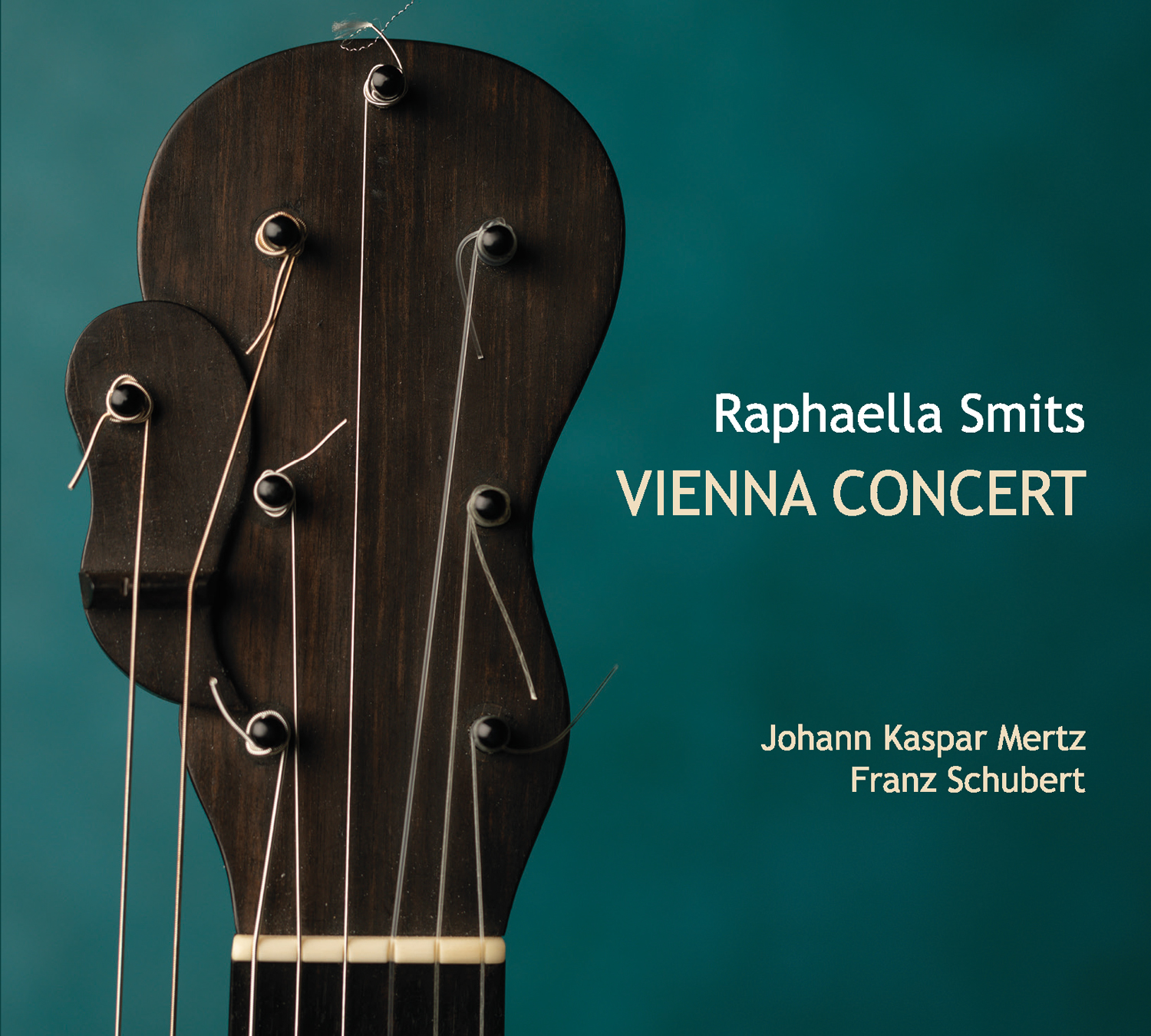
 Amazon
Amazon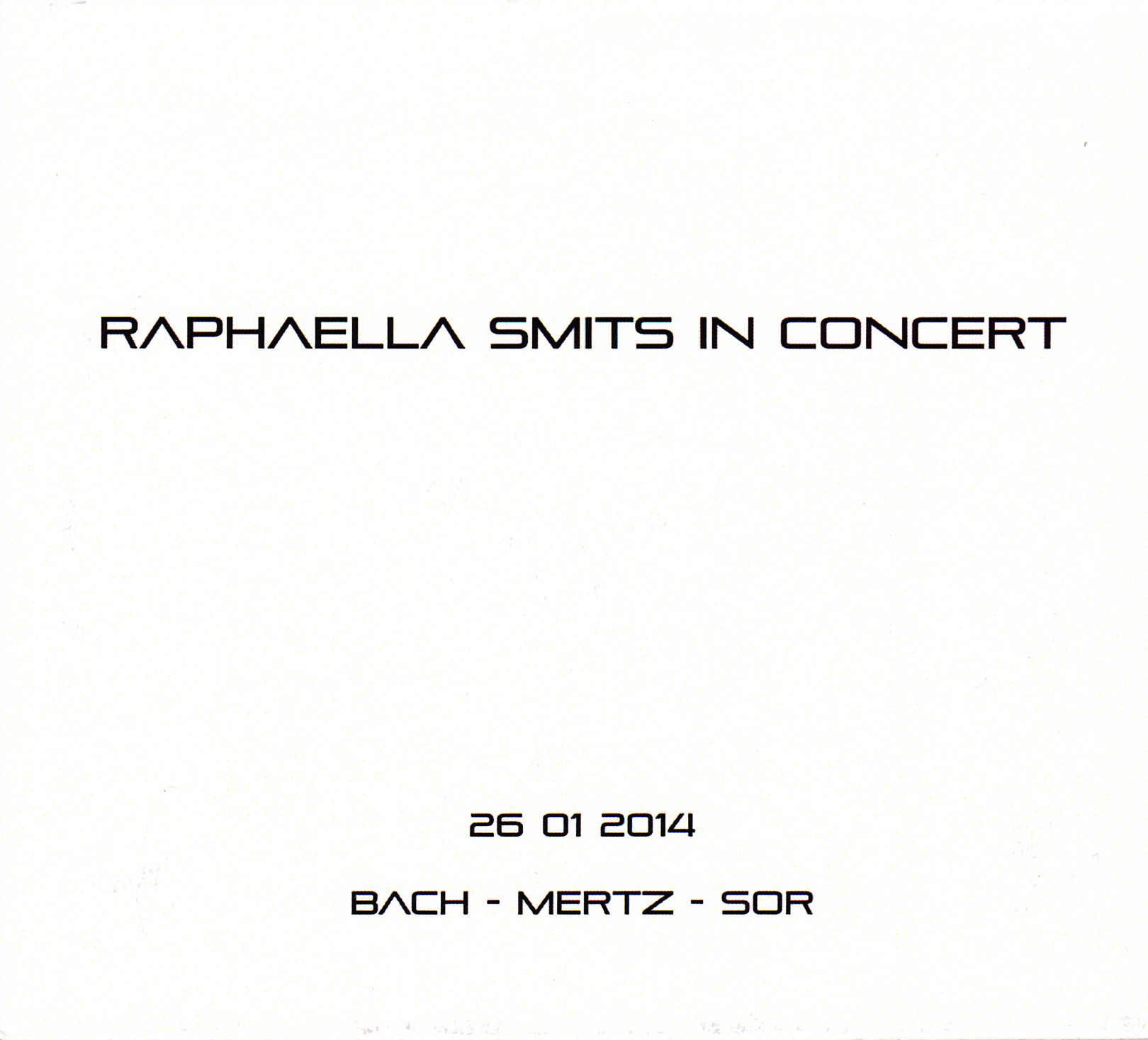
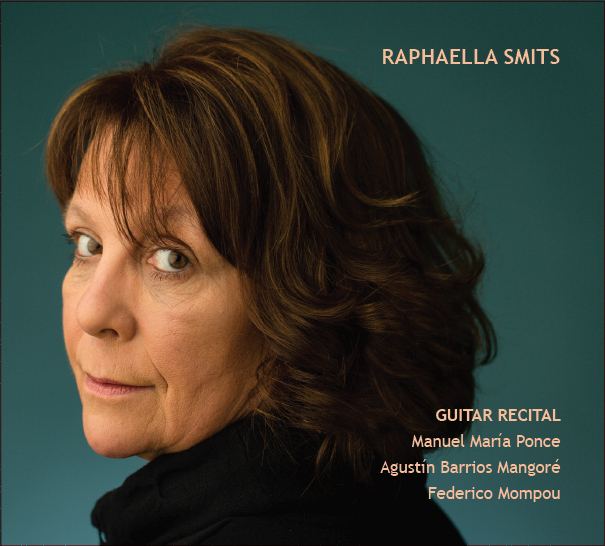
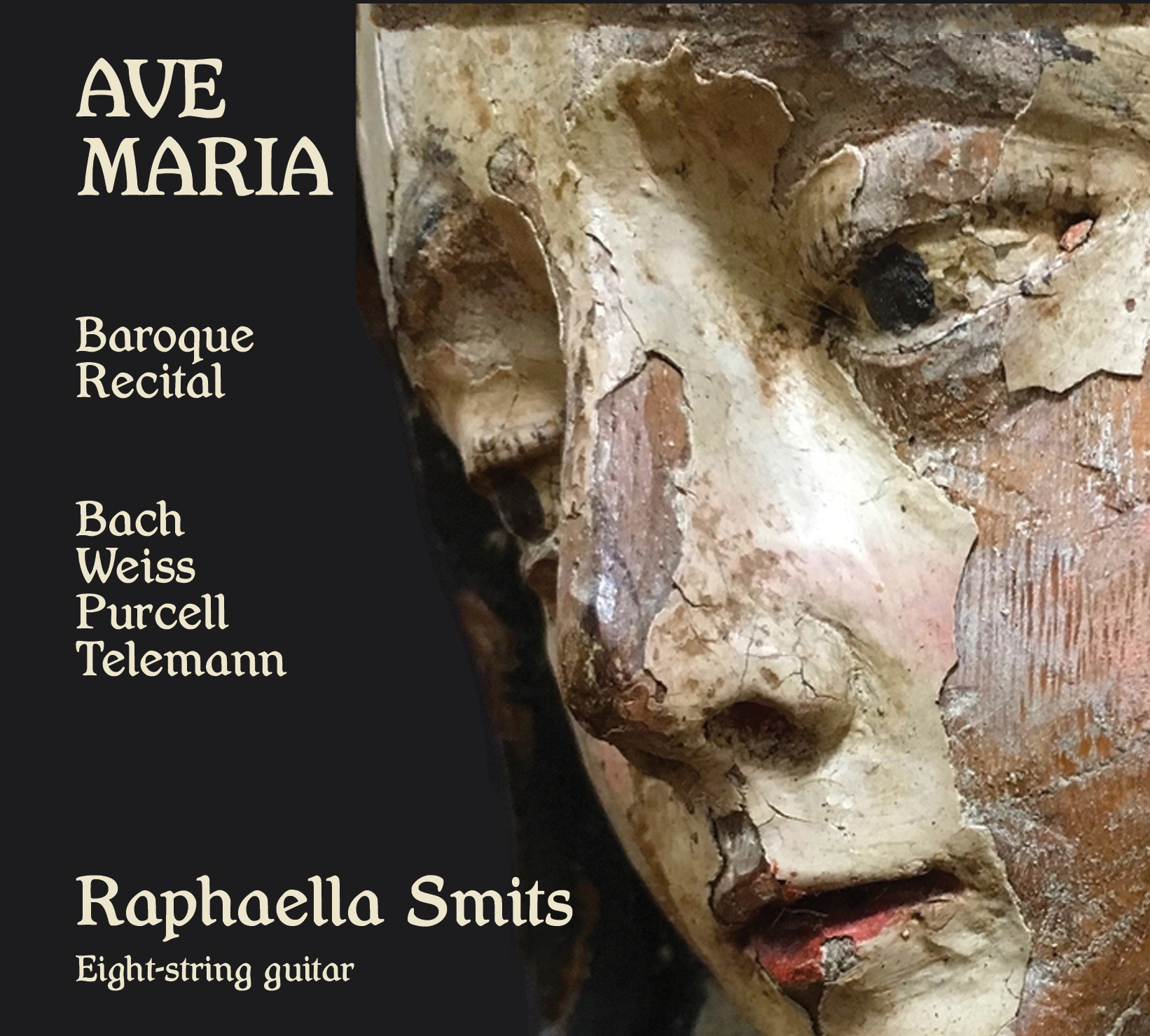
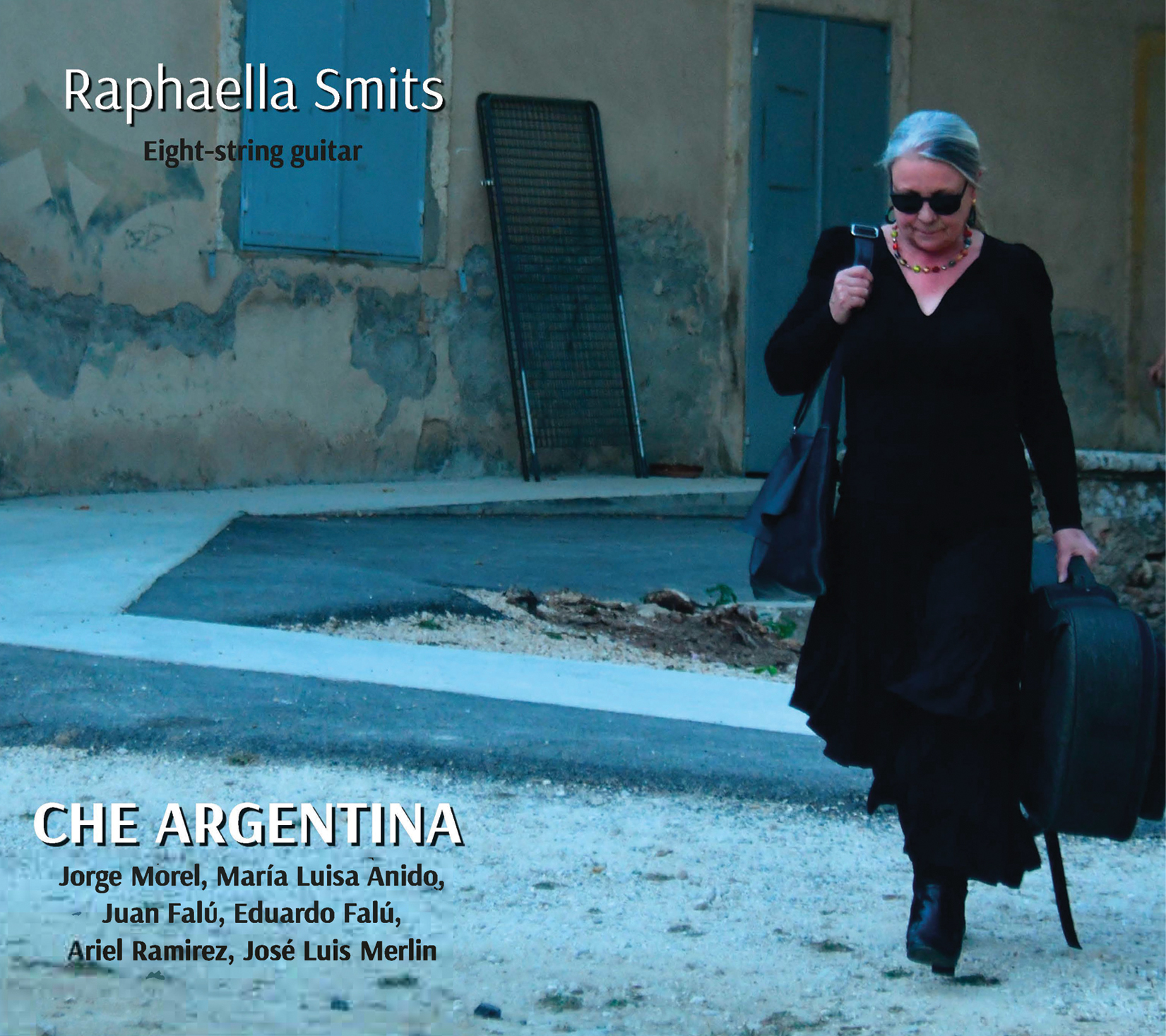
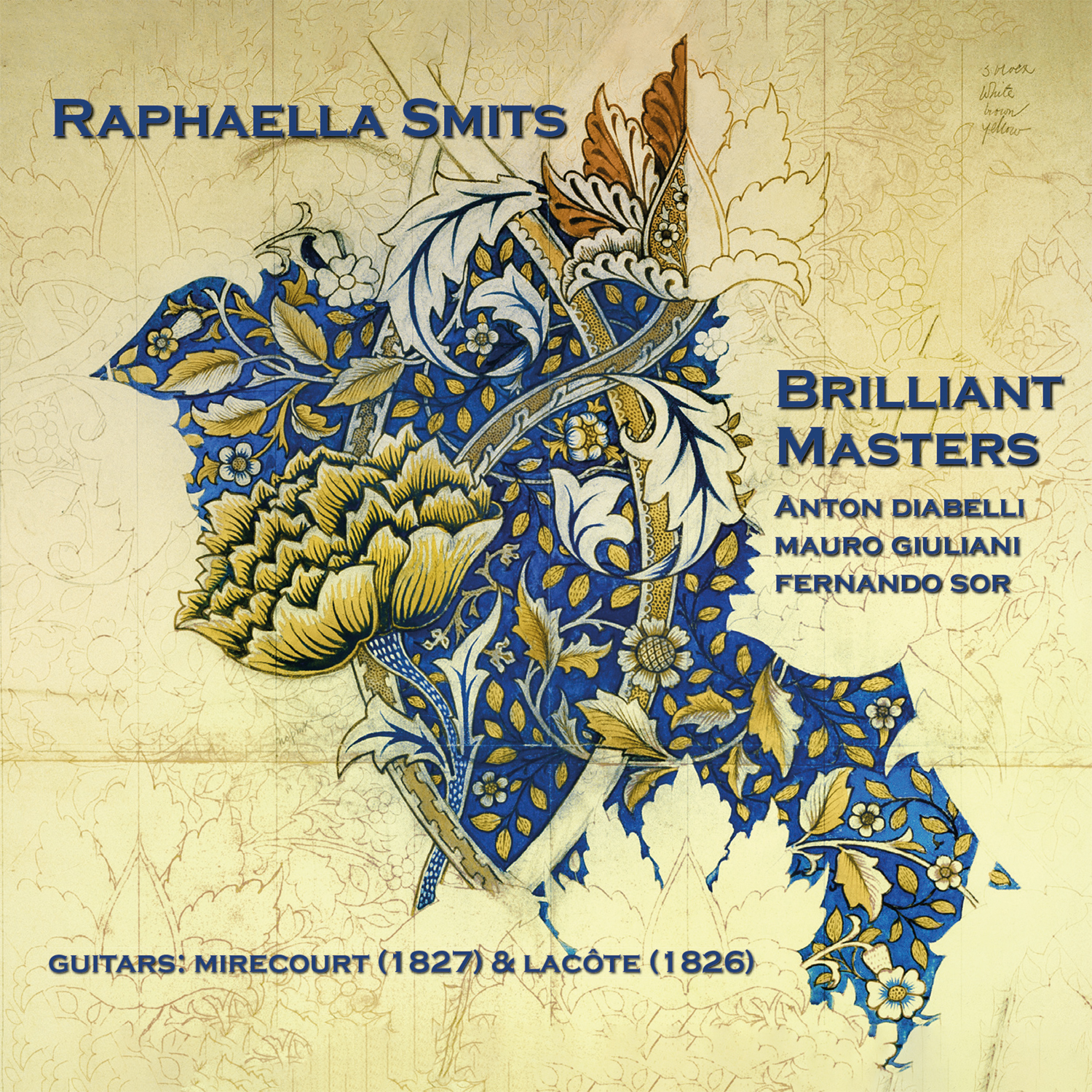
 Follow Us on Twitter
Follow Us on Twitter Follow Us on Instagram
Follow Us on Instagram Visit Our Partner Soundset Recordings
Visit Our Partner Soundset Recordings